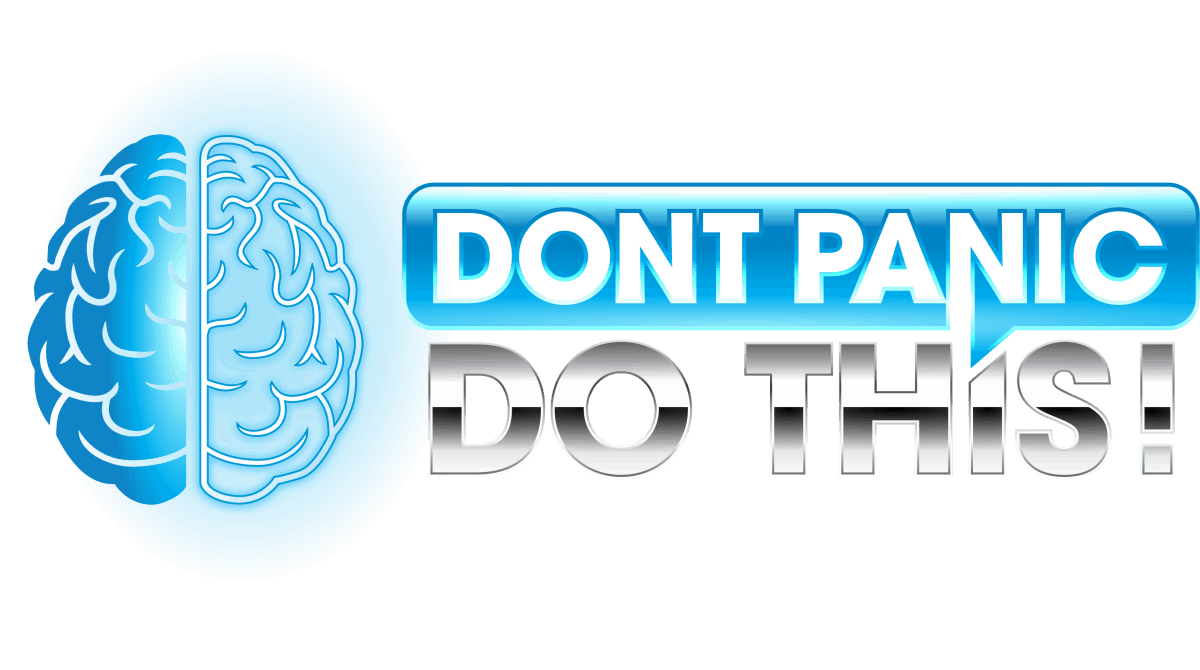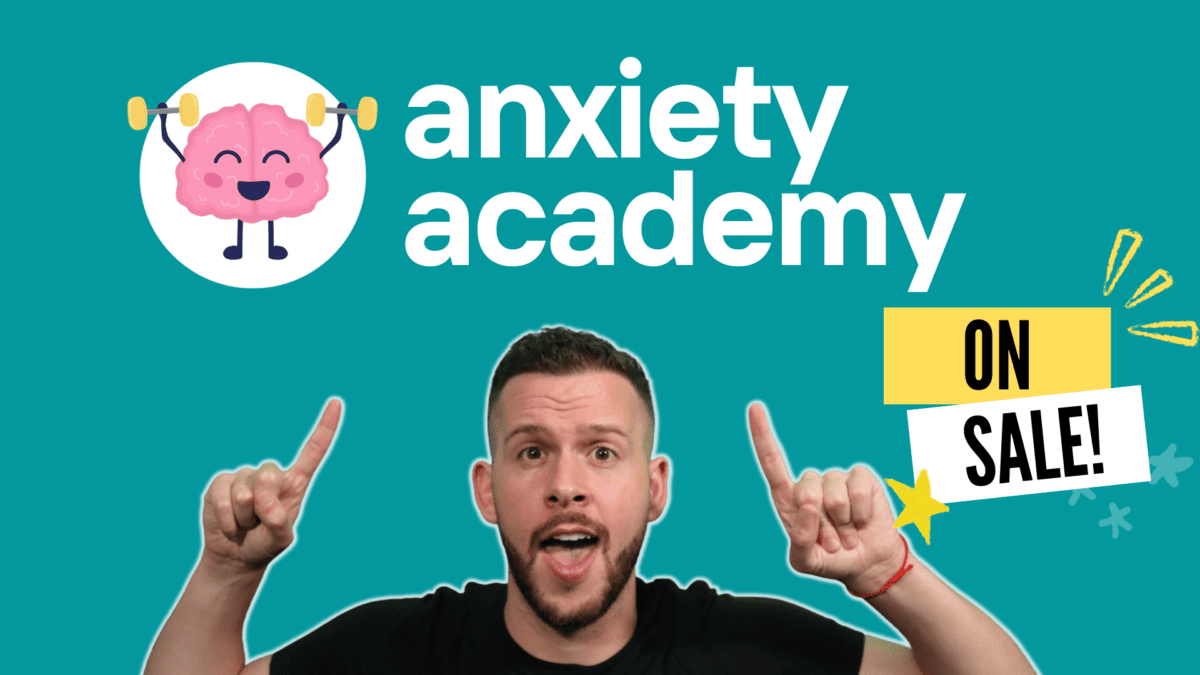Glossophobia, the fear of public speaking, is thought to affect as much as 75% of the population. For both students and professionals alike, this phobia tends to take the form of presentation anxiety. So, how can we overcome stage fright and presentation anxiety once and for all?
While avoiding presentations may bring some short-term relief to your anxiety, this will worsen your stage fright in the long-run. To overcome presentation anxiety long-term, presentation tools and gradual practice are the most effective solutions.
Maybe, right now, you’re extremely anxious about a presentation coming up. Maybe the only thought racing through your mind is how in the world am I going to get out of giving this presentation?
No worries. This guide is going to cover everything – and I mean everything – you’ll need to know. Make sure not to skip the section on “alternative ways of presenting,” I think you’ll find those really useful!
No need to stress; let’s get right into this.
What Causes Presentation Anxiety?
First things first… why do we feel presentation anxiety in the first place?
Sure, we might expect our heart to pound and breathing to accelerate as we walk along the edge of a cliff – but during a presentation? What part of talking about George Washington Carver inventing peanut butter should cause our hands to tremble and our voice to stutter?
Well, as it turns out, presentation anxiety is caused by ancient mechanisms in our brain responsible for our survival. For anxious people, our brain perceives being the center of attention in large group to be a threat. This triggers the “fight or flight” response, causing us to panic as we try and escape our uncomfortable setting.
Obviously, we are in no real danger while giving a class presentation or work presentation. Many years of evolution, however, have trained us to avoid stage fright with a passion. In ancient times, being surround by a (potentially angry) mob could have fatal consequences; as could being humiliated, rejected, or otherwise cast out from the tribe.
For many of us – especially those of us prone to social anxiety – such fears have stuck with us since caveman times. It’s important we remember these fears are harmless. Just being aware of their nature can help with this process. Despite what your brain and body may be telling you, these feelings of anxiety are not dangerous; they are going to pass.
Feel free to check out this article for a better understanding of the evolutionary psychology behind anxiety.
How to Get Out of a Presentation
I recommend against avoidance in most cases, as it only reinforces our anxiety in the long-run.
However, I know what it’s like to be a student with presentation anxiety.
I know how hard it is juggling academics, a social life, relationships, and newly blossoming anxieties all at once. I know that it can get so bad the most logical option feels like dropping out of school altogether. I don’t want you to feel like you have to do that.
So, if you’re really just not ready to overcome your stage fright:
- Intentionally Choose Classes That Don’t Require Presentations
- Tell the Teacher or Professor About What You’re Going Through
- Ask the Teacher or Professor for Alternative Assignments
- For Group Presentations, Ask Someone Else to Take the Lead
- Present Your Assignment in an Alternative Format Using Presentation Tools and Software (more on this in a bit)
If this seems a bit vague, it’s only because I’ve actually dedicated an entire article to this topic already. Check out this piece on how to get out of giving a presentation in class for more help with this.
Like I said, ultimately, avoidance is a poor strategy. However, I believe it’s just as detrimental to be “forced” into facing our fears before we are mentally prepared to do so. Having been there myself, I want you to be able to rest easy knowing that you do have some options here.
For this guide, however, I want to focus more on how to actually overcome presentation anxiety and stage fright.
My secret is – believe it or not – I get incredibly nervous before public speaking, no matter how big the crowd or the audience and, um, despite the fact that I laugh and joke all the time I get incredibly nervous, if not anxious, actually, before going into rooms full of people when I'm wearing a suit... And now that I've confessed that, I'll probably be even more worried that people are looking at me.
How to Stop a Panic Attack While Presenting in Class
When I first started having panic attacks, I had no idea what they were or why they were happening. Prior to my first panic attack, I had never had an issue with public speaking or presentation anxiety at all. In fact, I had voluntarily participated in several clubs and activities that required public speaking.
Yet, when my first few panic attacks started (I was around 16 at the time), they would occur in any random situation. Wherever they occurred, I'd quickly develop a phobia associated with that location or situation. One such random panic attack occurred – you guessed it – during a class presentation.
While this experience was terrifying, embarrassing, and extremely uncomfortable, I had – fortunately – managed to keep it together enough for most people not to notice. For the many class presentations that would follow, however, I had to develop some tricks to stop panic attacks while presenting in class.
Here’s what worked for me:
- Volunteer to go first. This may seem strange, but I always felt it easier to volunteer first and get it out of the way. Oftentimes, it’s easier to deal with presentation anxiety when we don’t feel cornered. By choosing to do it yourself, you maintain some control of the situation and get the jump on things before anticipation anxiety kicks in.
- Remember you are not going to die. This is just a panic attack, and it’s going to pass. It may be uncomfortable, but it will be over within a few moments.
- Take control of your breathing. 478 breathing is a simple technique that works. Simply breathe in for 4 seconds through the nose, hold for 7 seconds, exhale for 8 seconds through the mouth.
- Find a focus object. Choose a point, or several points, to focus on in the room. This could be a ceiling tile, a lightbulb, a pile of books, anything. Whenever your thoughts start to wander or spiral out of control, recenter your thoughts on that focus object.
- Try and remember the other times you’ve given a class presentation with anxiety. Chances are, this isn’t your first time. Remember those past successes and visualize this presentation as one where you overcome stage fright as well. If your mind is drawn to a time when it didn’t go so well, at least remind yourself that it passed and you survived it; just as you’ll survive this one.
- If you have a friend in the class, look to them from time to time. Flash them a smile or a wink, and try not to laugh out loud while you’re up there. This may seem silly, but I’d rather stifle a laugh than grapple a panic attack.
- Remember that no one’s really paying attention. Just as you were sitting at your desk nervously thinking about your own turn to present, most people are doing the exact same now. And even if they’re not anxious, they’re probably zoned out or drifting off; it’s quite difficult to keep an involuntary crowd’s attention. Trust me, they’re probably not thinking about you much.
These are just a few ways to stop a panic attack while presenting in class. Of course, just about any method for stopping panic attacks can work well here, so feel free to explore our site a bit to learn some other methods.
There are only two types of speakers in the world:
1. The nervous
2. Liars
Alternative Ways of Presenting to Help Overcome Stage Fright
If you take nothing else from this article, I believe that this is the section that can help anxious students and professionals with stage fright the most. When I was dealing with presentation anxiety myself, most of these options didn’t even exist. If you’re anxious about standing in front of class and presenting, any of these could be fantastic alternatives to presenting.
Basically, any of these presentation software tools can help you to quickly create a visually stunning presentation; all without having to speak in front of the class. They utilize audio, video, and/or animation to create informative videos that get the point across even more effectively than conventional presentations.
For the most part, all a teacher or boss really cares about is that you:
- Put hard work and dedication into your assignment
- Learned something throughout the process
- Are able to communicate what you learned to educate your peers
Telling the teacher “Sorry, I just can’t present today,” won’t meet any of these points, and is likely to land you a failed grade.
Instead, ask your teacher if you can use one of these presentation tools to create an even more engaging and informative presentation. This way, it’ll seem like you’ve put in the most effort in the class, rather than the least; all without having to speak in front of the class.
Here are the automated presentation tools I currently use myself and recommend:
I go into much greater detail on these tools here: automated presentation software. Before buying anything, I strongly suggest giving that article a read. Otherwise, Toonly and Doodly are my top picks.
What is the Best Presentation Anxiety Medication for Stage Fright?
Giving a presentation in high school or college can be extremely stressful for many people. If standing in front of the class feels like an impossible task, you may be wondering about presentation anxiety medication. So… what are the best drugs for presentation anxiety?
Since I’m not a doctor, I can only offer you a friendly opinion here.
In general, I think it’s a good idea to steer clear of anti-anxiety medication whenever it isn’t absolutely necessary. If your doctor prescribes you presentation anxiety medication, so be it. In the long-run, however, this can often create cycles of reliance and dependence that are best avoided.
But what about taking an over-the-counter supplement for anxiety before a presentation?
I have personally found one supplement to help me relax and communicate more confidently. This is my favorite supplement for stage fright, as it has helped me tremendously in situations where I would normally feel a bit socially anxious. I’ve used this supplement for presentations, job interviews, and even first dates.
My favorite supplement for presentation anxiety symptoms is phenibut. It just helps me feel significantly calmer while simultaneously boosting my sociability and confidence. This supplement is extremely affordable and legally sold online in most countries. If you want to learn a bit more about it, I have an article going into greater depth about phenibut here.
I do urge responsibility when using phenibut, as you don’t want to become reliant on it. But if it makes the difference between shirking your presentation vs. delivering a great one, I highly recommend it.
Let our advance worrying become advance thinking and planning
Tips for How to Present a Project Effectively
Few things help to eliminate anticipation anxiety like truly preparing for the situation. If your fears are rooted in delivering a poor or ineffective presentation, take some time to prepare.
Here are some tips for how to present a project effectively:
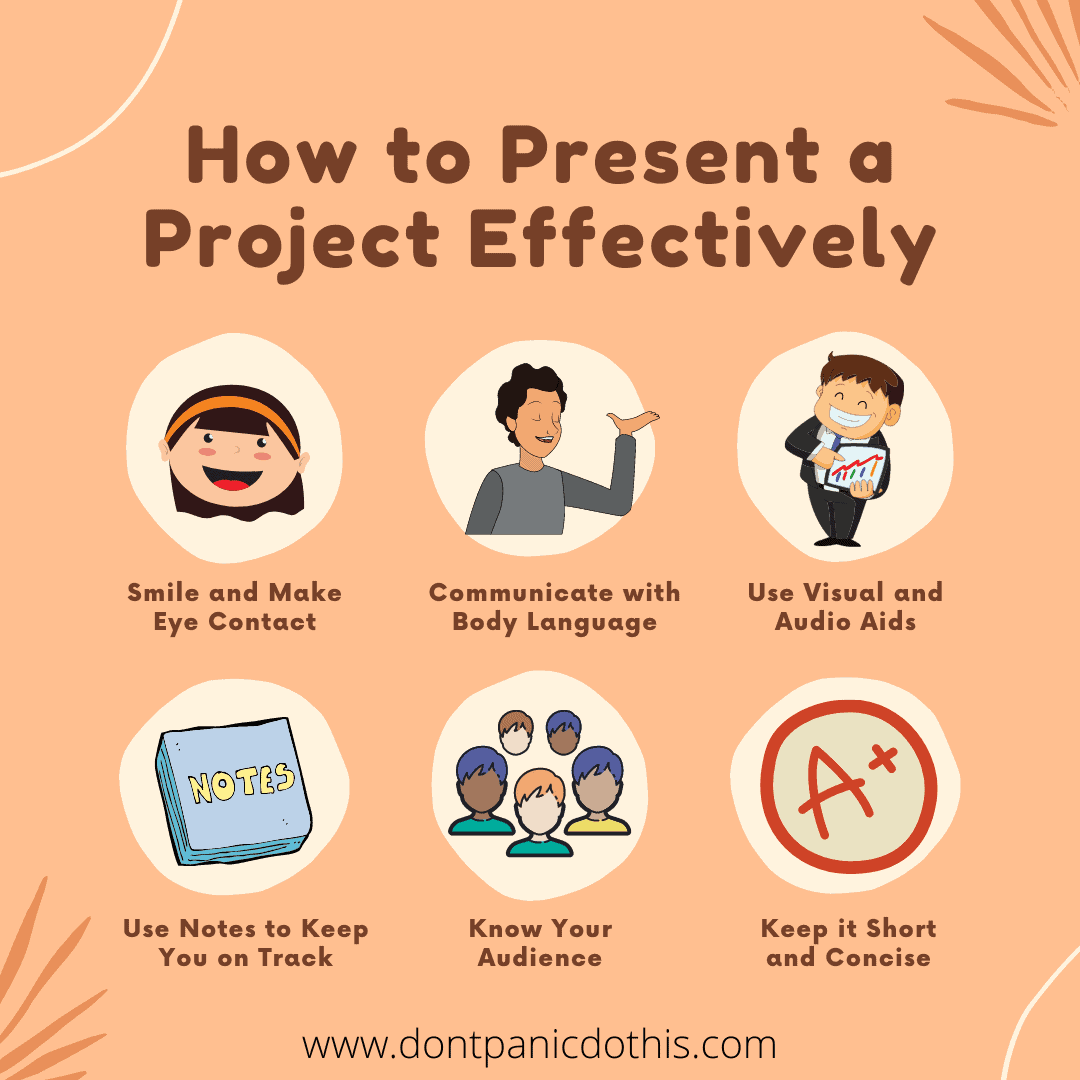
How to Overcome Stage Fright and Presentation Anxiety
There are many strategies we can take when dealing with our presentation anxiety or stage fright. Here are three of the most common strategies:
- Complete Avoidance – Post-college, public speaking occasions like presentations are pretty few and far between. As an adult, it isn’t too difficult to avoid presentations, although not overcoming stage fright can be a hinderance in many career fields.
- Reluctant and Occasional – Here’s where most people in the world probably fall. Most of us aren’t 100% comfortable with presenting, yet we suck it up and get it done when we have to. This isn’t a bad place to be, although it's uncomfortable occasionally.
- Conquering Presentation Anxiety – Some brave souls will choose to completely crush their fear of public speaking, overcoming stage fright and glossophobia entirely. This path is not for the faint of heart, as it isn’t easy; however, it has the largest payoff in the end with regard to career and confidence.
We’ve already discussed strategies for the first two earlier in this guide. Let’s now focus on the third.
How can we overcome presentation anxiety and glossophobia?
Well, whenever we want to eliminate a fear or phobia long-term, the best way to do so is through exposure therapy. We do have a full article on how to extinguish fears through exposure therapy if you’re curious to really understand this process.
For now, I’ll fill you in on the basics:
By gradually stepping outside of our comfort zone and exposing ourselves to our fears, we can eliminate those fears over time. The key here is that we are stepping a bit outside our comfort zone, but not immersing ourselves so fully to induce panic. In other words: challenge yourself at a fair pace.
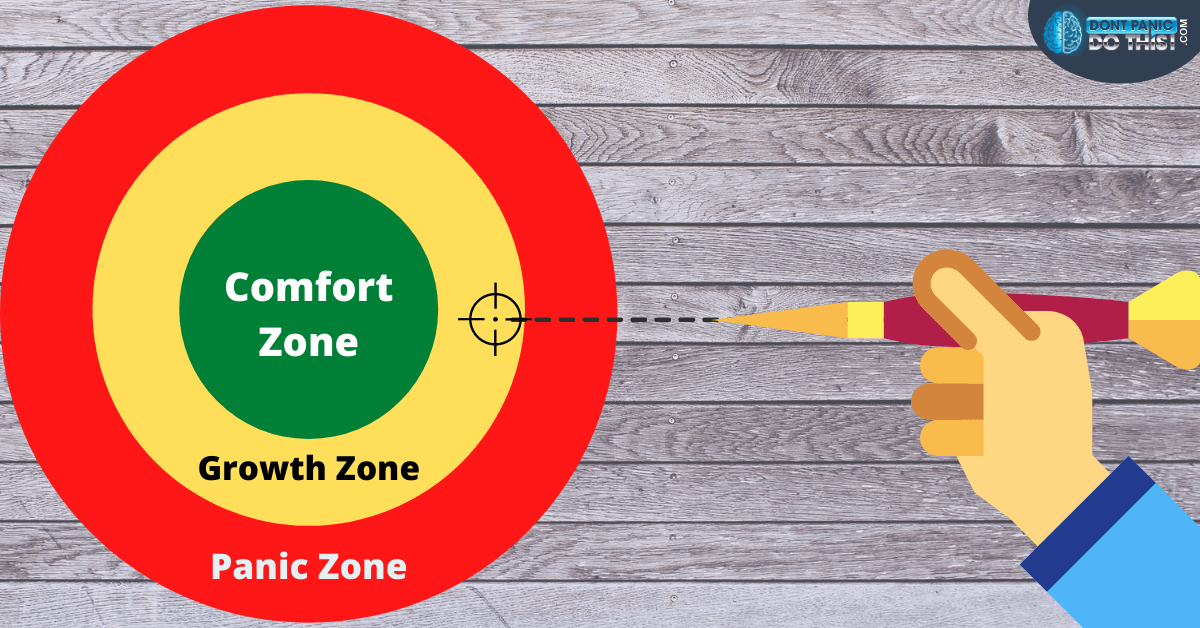
So how do we apply this to overcome presentation anxiety and stage fright?
My suggestion would be to identify the smallest voluntary step you can take outside of your comfort zone without panicking. Perhaps presenting may induce a panic attack, but are you at least able to read aloud from your seat? Perhaps reading aloud is difficult, but could you at least volunteer an answer from time to time?
This process will be as unique as a fingerprint for each person, as we all have different comfort zones and stressors. Try and find where your comfort zone ends and take small steps just outside of it. With repeated practice, you’ll notice your comfort zone expanding as you become more confident with the activity.
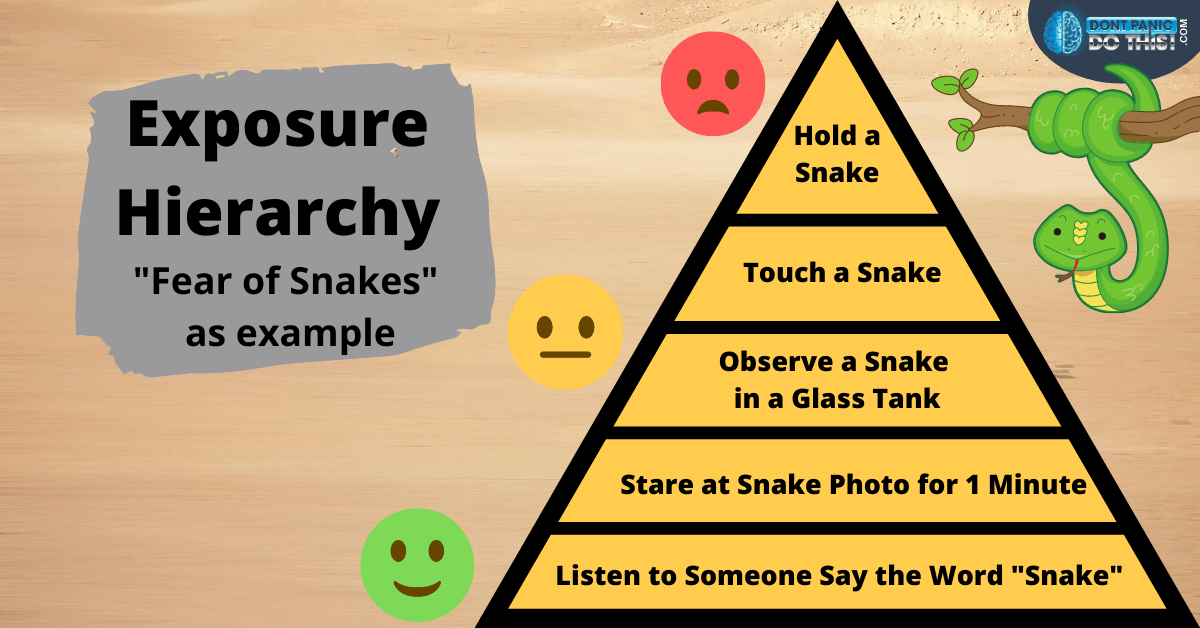
In general, here are some opportunities you may find useful for stepping outside of your comfort zone:
- Start raising your hand more often to ask or answer questions
- Volunteer to read aloud or answer a problem on the board whenever you’re feeling confident
- Create a presentation using presentation software (recommendations above), but see if you can actually get through it without relying on the audio. If you get too nervous, you can use it
- Rather than trying to get out of a presentation, ask your groupmates if you could take a lesser role with speaking; perhaps you could do more of the research to make up for it
- Seek out your local Toastmasters group to practice public speaking away from the pressures of your own social circles
- Try and attend small open mic nights and similar opportunities to gain experience with public speaking
Fun Fact: I successfully avoided presentations for the majority of my high school and college career. Afterward, I wound up working several jobs that forced me to confront this fear. First came a sales job, and next came a job that required me to speak in front of 150-200 people multiple times per day.
Turns out, I liked money more than I disliked public speaking.
List of Famous People with Public Speaking Anxiety
Sometimes a bit of solidarity goes a long way. Here’s a list of famous/successful people who have long been known to have suffered from public speaking anxiety:
- Winston Churchill
- Mahatma Gandhi
- Abraham Lincoln
- Prince Harry
- Warren Buffet
- Mark Zuckerberg
- Sigmund Freud
- Arnold Schwarzenegger
- Tiger Woods
- Rowan Atkinson
- Jay-Z
- Beyonce
- Jackie Chan
- Adele
- Thomas Jefferson
- Margaret Thatcher
- Princess Diana
- Eleanor Roosevelt
- Sir Richard Branson
As you can see… we’ve got some big names up there. And this is just a very small list of successful people who have been open about their public speaking anxiety – to say nothing of the silent majority!
Never forget, you’re far from alone in experiencing this – you can absolutely overcome presentation anxiety, stage fright, and glossophobia if you wish to!
